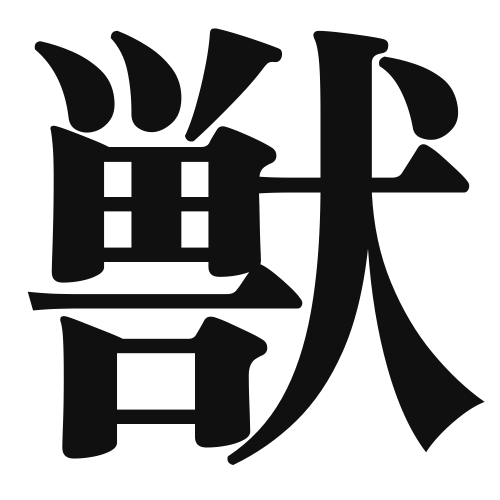1. Overview of Meaning
The kanji “獣” (pronounced “juu” in Japanese) means “beast” or “animal.” It typically refers to wild animals, especially those that are not domesticated.
2. Formation and Radical
The kanji “獣” is a compound character that combines the radical for “animal” (犭) with the phonetic component “shuu” (獸). The radical indicates that the character is related to animals, while the phonetic part provides the pronunciation.
The radical 犭 is often associated with dogs or animals in general, emphasizing the character’s connection to the animal kingdom.
3. Examples of Usage
Common words and phrases that include “獣” are:
- 獣医 (juui) – veterinarian
- 獣肉 (juuniku) – game meat
- 獣道 (jumichi) – animal trail
Example sentence in daily conversation:
「森には多くの獣が住んでいます。」
(There are many beasts living in the forest.)
4. Synonyms and Antonyms
Similar kanji with related meanings include:
- 動物 (doubutsu) – which means “animal” in a broader sense, including domesticated animals.
Antonyms include:
- 人間 (ningen) – meaning “human,” which refers to people as opposed to animals.
5. Cultural and Historical Background
The concept of “獣” is significant in Japanese culture, often appearing in folklore and mythology. Many traditional stories feature beasts as symbols of nature’s power or as guardians.
Proverbs and idiomatic expressions include:
- 「獣のように生きる」 (to live like a beast) – which can imply living instinctively or without societal constraints.
This reflects the duality of animals in Japanese culture, representing both the wildness of nature and the need for harmony with it.
